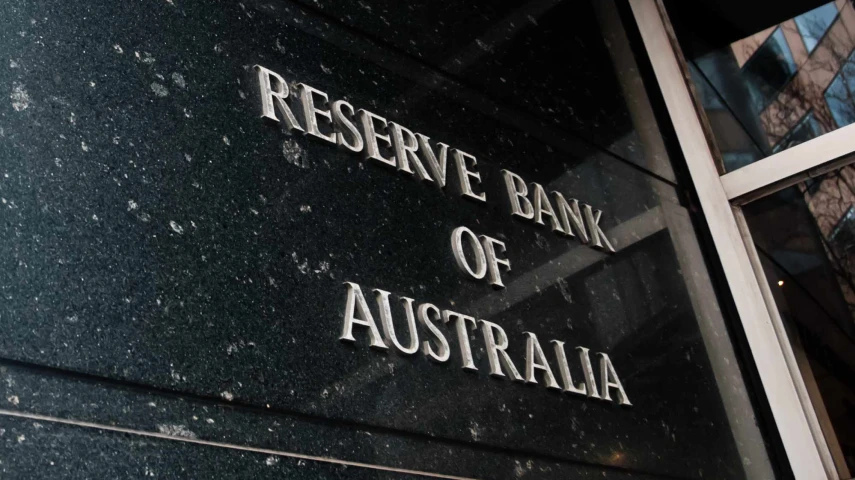RBA's May minutes bring back slightly hawkish tone



After its March minutes were perceived by most as a move closer to a neutral stance, the Reserve Bank’s latest minutes revealed the board considered a rate hike in May as a result of a slower-than-anticipated decline in inflation among other unexpected economic indicators.
In March, the RBA broke with its usual practice by indicating it didn’t see a need to raise the cash rate, marking a significant departure from previous statements. However, this shift towards a more neutral stance was brief, as revealed in the May meeting minutes where the central bank acknowledged contemplating raising the rate before eventually deciding that a hold would suffice.
“Turning to considerations for the policy decision, members noted that most of the data received since the previous meeting had been stronger than expected,” the RBA’s minutes read.
“There may be somewhat less slack in the economy than previously assessed. Inflation in Australia had declined more slowly than anticipated. Conditions in the labour market had eased by less than expected over prior months and were tighter than those consistent with full employment.”
Acknowledging the change in market pricing, which is now less confident in a cash rate reduction in 2024, board members appeared to second-guess their forecasts, including those related to inflation.
“Members discussed the key judgements in the staff forecasts. These were: consumption growth would remain weak for most of 2024, despite the stronger outlook for growth in income and wealth, which have been the key determinants of consumption in the past; there was now somewhat less spare capacity in the labour market than previously assumed, given the unexpectedly gradual easing of conditions; and inflation would continue to moderate, despite recent information signalling more persistence than previously assessed,” the minutes read.
“If these judgements prove wrong, the forecasts for inflation and the labour market would need to be materially altered.”
Given these observations, board members "considered their decision on the cash rate”.
“Raising the cash rate at this meeting could be appropriate if the board formed a view that the judgements underpinning the staff forecasts risked being overly optimistic about the forces that would drive down inflation, leaving the balance of risks tilted to the upside,” the minutes said.
The real concern for the RBA is that consumer spending, which is currently signalling ongoing weakness, could pick up “somewhat rapidly” if labour market outcomes remain benign and real household disposable income stages a recovery.
“If accompanied by further growth in public demand and business investment, this could sustain aggregate demand above the economy’s supply potential and delay the return of inflation to target,” the RBA said, adding that a higher cash rate might also be required if trend productivity growth turned out to be weaker than assumed.
Ultimately, the board ruled that updates on the state of the economy, while concerning, had not been sufficient to warrant a change in the stance of monetary policy.
“Inflation was still declining towards the target and the recent information did not materially alter its trajectory. Furthermore, the forecasts showed a credible path by which the board could meet its objectives in a timeframe that was consistent with the board’s strategy,” the RBA said.
It noted that holding the cash rate steady was also perceived as an appropriate way to mitigate against risks around a more material slowing in the economy.
The board also said it is focused on looking through the “short-term variation in inflation to avoid excessive fine-tuning”. It, however, acknowledged that the path forward is “unlikely to be smooth”.
“Members agreed that it was difficult either to rule in or rule out future changes in the cash rate target,” the central bank said.
“They reiterated their resolve to do what is necessary to return inflation to target, and to continue paying close attention to developments in the global economy, trends in domestic demand, and the outlook for inflation and the labour market.”
Economists remain confident in rate cut
Commenting on the RBA’s minutes, CBA’s Belinda Allen said recent government policies announced after the May board meeting to mechanically lower headline CPI “should” contribute to anchoring inflation expectations.
“Also helping will be evidence of the peak in wages growth now being behind us. One key risk though remains, a strong pipeline of investment work by both the private and public sector,” the senior economist said.
Overall, the CBA, remains comfortable with its base case, but noted it will be watching the real-world impact of the budget announced last week.
“Our central scenario sees the RBA commence an easing cycle in November 2024. However, the arrival of circuit breakers on 1 July will need to be watched for the consumer response,” said Allen.
“The next piece of data to watch will be the monthly CPI for April due 29 May.”
ANZ’s Adam Boyton said the central bank’s minutes have a “slightly more hawkish tinge” than the post-meeting statement.
“We are left with the impression that any resumption of tightening from the RBA would require the board to be of the view that inflation was unlikely to return to the band over the next few years and that the hurdle to act is now higher than November’s risk management tweak,” Boyton explained.
“We continue to think that the economy is softening enough to deliver in target inflation and hence retain our view that the next move in the cash rate is down – most likely in November, although risks are skewed toward a later start to the easing cycle. We expect only a modest easing cycle in total, with just three rate cuts,” the head of Australian economics at ANZ said.
The next RBA board meeting is on 17–18 June.
Recommended for you
Advice licensee Centrepoint Alliance has entered an agreement to acquire the comprehensive financial advice book of the super fund’s subsidiary firm.
A coalition of industry groups including the SMSF Association is demanding the government and the opposition “immediately and unequivocally rule out any move to tax unrealised investment gains in any part of the tax system”.
AMP’s new chair has used his inaugural AGM address to call for policy reform on the “decumulation” phase of superannuation and position AMP as a key player in addressing the challenge.
Reserve Bank governor Michele Bullock has quashed hopes of an out-of-schedule rate cut, telling an event in Sydney that it remains too early to determine the trajectory of interest rates as the RBA grapples with growing global economic volatility.












